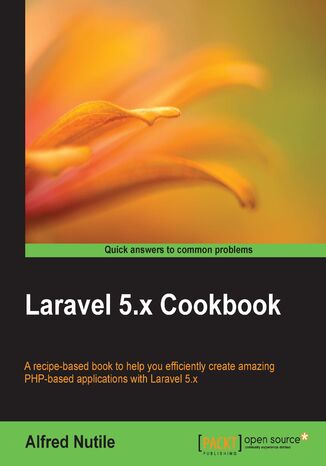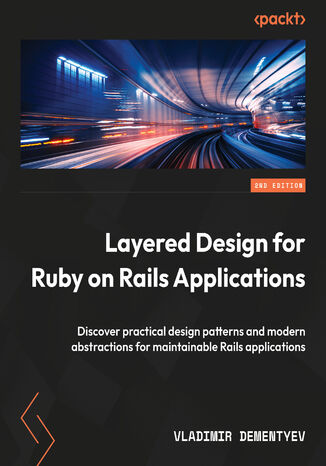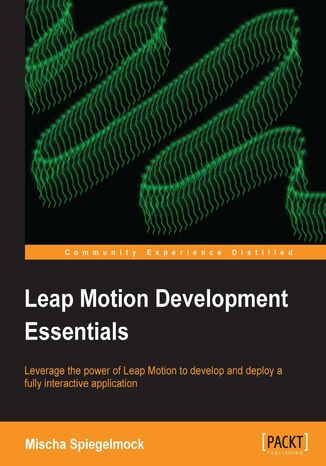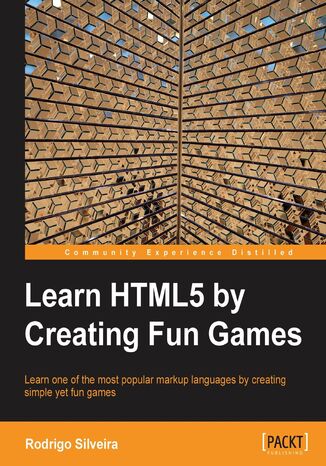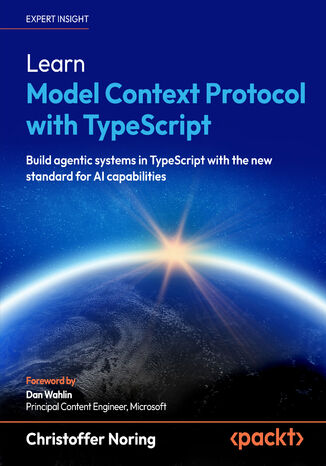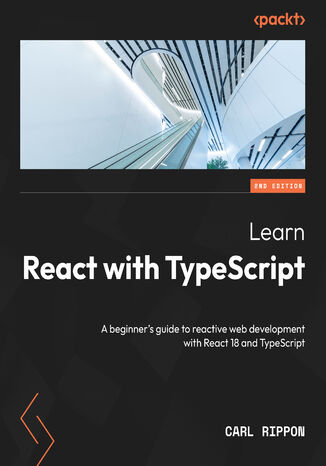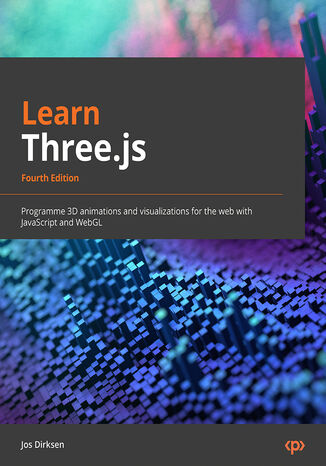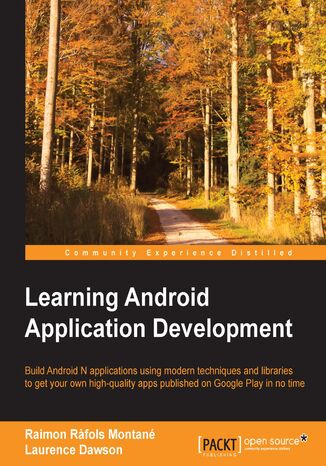Techniki programowania
Terry Matula, Alfred Nutile
Laravel is a prominent member of a new generation of web frameworks. It is one of the most popular PHP frameworks and is also free and an open source. Laravel 5 is a substantial upgrade with a lot of new toys, at the same time retaining the features that made Laravel wildly successful. It comes with plenty of architectural as well as design-based changes.The book is a blend of numerous recipes that will give you all the necessary tips you need to build an application. It starts with basic installation and configuration tasks and will get you up-and-running in no time. You will learn to create and customize your PHP app and tweak and re-design your existing apps for better performance. You will learn to implement practical recipes to utilize Laravel’s modular structure, the latest method injection, route caching, and interfacing techniques to create responsive modern-day PHP apps that stand on their own against other apps. Efficient testing and deploying techniques will make you more confident with your Laravel skills as you move ahead with this book.Towards the end of the book, you will understand a number of add-ons and new features essential to finalize your application to make it ready for subscriptions. You will be empowered to get your application out to the world.
Vladimir Dementyev
Rails accelerates web development with its convention-over-configuration principle and MVC pattern. But as your app grows, that simplicity can turn into tangled complexity, making it harder to maintain and extend. The second edition of Layered Design for Ruby on Rails Applications helps tackle this challenge head on, guiding you toward a more scalable and maintainable architecture.Written by a seasoned software engineer and open source contributor to Ruby on Rails, this updated edition refines the proven techniques from the first edition and introduces timely new topics that reflect today’s development challenges. You’ll dive deeper into state machines and workflows, learning how to identify, embed, and eventually isolate them for clarity and resilience. You’ll also explore the exciting frontier of abstractions in the AI era, treating LLMs as APIs, structuring agent layers, and integrating third-party libraries to keep your AI features organized and testable.By embracing layered abstractions, you’ll not only reduce complexity but also improve your ability to adapt to change - whether adding new features, scaling systems, or weaving AI capabilities into your applications.By the end of the book, you’ll be equipped to design clean, extensible, and future-ready Rails applications.*Email sign-up and proof of purchase required
Mischa Spiegelmock
Leap Motion is a company developing advanced motion sensing technology for human–computer interaction. Originally inspired by the level of difficulty of using a mouse and keyboard for 3D modeling, Leap Motion believe that moulding virtual clay should be as easy as moulding clay in your hands. Leap Motion now focus on bringing this motion sensing technology closer to the real world.Leap Motion Development Essentials explains the concepts and practical applications of gesture input for developers who want to take full advantage of Leap Motion technology. This guide explores the capabilities available to developers and gives you a clear overview of topics related to gesture input along with usable code samples.Leap Motion Development Essentials shows you everything you need to know about the Leap Motion SDK, from creating a working program with gesture input to more sophisticated applications covering a range of relevant topics. Sample code is provided and explained along with details of the most important and central API concepts.This book teaches you the essential information you need to design a gesture-enabled interface for your application, from specific gesture detection to best practices for this new input. You will be given guidance on practical considerations along with copious runnable demonstrations of API usage which are explained in step-by-step, reusable recipes.
Rodrigo Silveira
HTML is fast, secure, responsive, interactive, and stunningly beautiful. It lets you target the largest number of devices and browsers with the least amount of effort. Working with the latest technologies is always fun and with a rapidly growing mobile market, it is a new and exciting place to be.Learn HTML5 by Creating Fun Games takes you through the journey of learning HTML5 right from setting up the environment to creating fully-functional games. It will help you explore the basics while you work through the whole book with the completion of each game.Learn HTML5 by Creating Fun Games takes a very friendly approach to teaching fun, silly games for the purpose of giving you a thorough grounding in HTML5. The book has only as much theory as it has to, often in tip boxes, with most of the information explaining how to create HTML5 canvas games. You will be assisted with lots of simple steps with screenshots building towards silly but addictive games.The book introduces you to HTML5 by helping you understand the setup and the underlying environment. As you start building your first game that is a typography game, you understand the significance of elements used in game development such as input types, web forms, and so on.We will see how to write a modern browser-compatible code while creating a basic Jelly Wobbling Game. Each game introduces you to an advanced topic such as vector graphics, native audio manipulation, and dragging-and-dropping. In the later section of the book, you will see yourself developing the famous snake game using requestAnimationFrame along with the canvas API, and enhancing it further with web messaging, web storage, and local storage. The last game of this book, a 2D Space shooter game, will then help you understand mobile design considerations.
Christoffer Noring, Dan Wahlin
Learn Model Context Protocol with TypeScript introduces developers, architects, and AI practitioners to the transformative capabilities of Model Context Protocol (MCP), an emerging protocol designed to standardize, distribute, and scale AI-driven applications. Through the lens of a practical project, the book tackles the modern challenges of resource management, client-server interaction, and deployment at scale.Drawing from Christoffer's expertise as a published author and tutor at the University of Oxford, you’ll explore the components of MCP and how they streamline server and client development. After that, you’ll progress from building robust backends and integrating LLMs into intelligent clients to interacting with servers via tools such as Claude for desktop and Visual Studio Code agents. The chapters help you understand the capabilities of hosts, clients, and servers, facilitating better interoperability, easier integration, and clearer communication between different components.The book also covers security best practices and building for the cloud, ensuring that you're ready to deploy your MCP-based apps. Each chapter enables you to develop hands-on skills for building and operating MCP-based agentic apps.*Email sign-up and proof of purchase required
Carl Rippon
Reading, navigating, and debugging a large frontend codebase is a major issue faced by frontend developers. This book is designed to help web developers like you learn about ReactJS and TypeScript, both of which power large-scale apps for many organizations.This second edition of Learn React with TypeScript is updated, enhanced, and improved to cover new features of React 18 including hooks, state management libraries, and features of TypeScript 4. The book will enable you to create well-structured and reusable React components that are easy to read and maintain, leveraging modern design patterns.You’ll be able to ensure that all your components are type-safe, making the most of TypeScript features, including some advanced types. You’ll also learn how to manage complex states using Redux and how to interact with a GraphQL web API. Finally, you’ll discover how to write robust unit tests for React components using Jest.By the end of the book, you’ll be well-equipped to use both React and TypeScript.
Jos Dirksen
Three.js has become the industry standard for creating stunning 3D WebGL content. In this edition, you’ll learn about all the features of Three.js and understand how to integrate it with the newest physics engines. You'll also develop a strong grip on creating and animating immersive 3D scenes directly in your browser, reaping the full potential of WebGL and modern browsers.The book starts with the basic concepts and building blocks used in Three.js and helps you explore these essential topics in detail through extensive examples and code samples. You'll learn how to create realistic-looking 3D objects using textures and materials and how to load existing models from an external source. Next, you'll understand how to control the camera using the Three.js built-in camera controls, which will enable you to fly or walk around the 3D scene you've created. Later chapters will cover the use of HTML5 video and canvas elements as materials for your 3D objects to animate your models. You’ll learn how to use morph targets and skeleton-based animation, before understanding how to add physics, such as gravity and collision detection, to your scene. Finally, you’ll master combining Blender with Three.js and creating VR and AR scenes.By the end of this book, you'll be well-equipped to create 3D-animated graphics using Three.js.
Raimon Rafols Montane, Laurence Dawson
The mobile app market is huge. But where do you start? And how you can deliver something that takes Google Play by storm? This guide is the perfect route into Android app development – while it’s easy for new apps to sink without a trace, we’ll give you the best chance of success with practical and actionable guidance that will unlock your creativity and help you put the principles of Android development into practice.From the fundamentals and getting your project started to publishing your app to a huge market of potential customers, follow this guide to become a confident, creative and reliable mobile developer. Get to grips with new components in Android 7 such as RecyclerView, and find out how to take advantage of automated testing, and, of course, much, much more. What are you waiting for? There’s never been a better time – or a better way – to get into Android app development.

